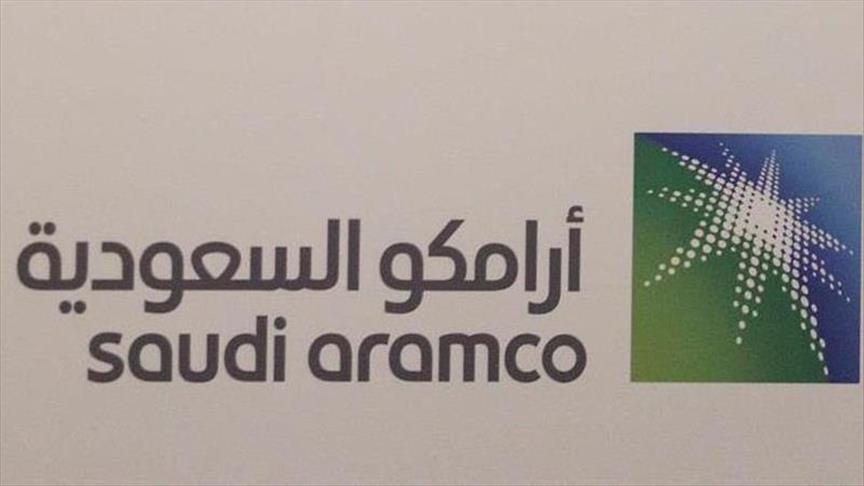Cheap oil production in Saudi Arabia is likely to prompt demand in Aramco’s initial public offering (IPO) that is scheduled to take place in the Saudi stock exchange Tadawul next month.
"Saudi Arabia is by far the cheapest place to produce oil," Caroline Bain, chief commodities economist at London-based Capital Economics, told Anadolu Agency on Friday.
"Even if absolute volumes of oil production or demand fall, Saudi Arabia would still be a competitive producer," she said.
Unlike the high cost of oil production for U.S. shale, deepwater projects or those in the Arctic, the breakeven cost of production in Saudi Arabia is below $10 per barrel, according to Aramco's IPO prospectus published last Saturday.
The prospectus also revealed that Aramco’s net income amounted to $111.1 billion in 2018, a figure that surpasses the combined earnings last year of Apple, Alphabet (Google) and ExxonMobil.
As part of Saudi Crown Prince Mohammed Bin Salman's Vision 2030 Plan, earnings from Aramco's IPO will be used for investment in other sectors to wean the kingdom off its overdependence on oil exports and revenues.
The crown prince has been reported to have recently pressured wealthy Saudis in the kingdom to buy Aramco shares to keep local demand high so that Aramco's listing in bigger markets in the future will attract more foreign investors.
"Domestic demand will likely be stronger than foreign demand as locals have more need to be in favor with the royal family, and some may buy out of national pride," Rory Fyfe, managing director of management consultancy MENA Advisors, told Anadolu Agency.
"Foreigners are likely to be more discerning than local investors and [they] will be almost entirely driven by dividend commitments as nothing else is even close to certain," he added.
- Will Aramco listing hurt the Tadawul?
The floating of Aramco shares in bigger markets such as New York, London, Tokyo and Hong Kong remains uncertain at the moment.
The bigger question for now, however, is whether Aramco will be too big for the Saudi Stock Exchange, Tadawul, to negatively impact it, with Aramco’s estimated market value at around $1.2 trillion - $1.8 trillion.
Fyfe argued that this question has been answered with the fall in the stock market when the IPO was announced.
"I don't think Aramco's IPO helps the Tadawul in the slightest," he said.
When Saudi Arabia formally announced Aramco's IPO on Nov. 3, Tadawul All Share decreased 1.99%, official figures show.
"Aramco will attract capital away from other listed stocks. It is too big for Tadawul, and is only being listed locally in the hope that it will boost demand from foreigners for an international listing," Fyfe explained.
- New shareholders unlikely to determine policy
Only a small fraction of Aramco shares, 0.5% for retail investors and still an unknown percentage for institutional investors will be offered to the public, and this makes it harder for new shareholders to have a say on how the company should be run.
"As a shareholder, you will have very little say in company policy. The government is not going to give up its control of the company any time soon," Bain affirmed.
"If you are an investor buying into it, you are buying on the basis that it is highly profitable, and there is going to be demand for Saudi oil for some time yet," she said.
- Oil prices
Since oil prices plummeted from $115 per barrel in June 2014 to below $30 per barrel in January 2016, some investors view crude oil as a risky commodity in an oversupplied market with the large influx of U.S. shale.
Saudi Arabia is one of the many oil-producing countries that have been hurt by a low price environment in recent years.
However, oil prices in the near-term are unlikely to impact investors' decisions on whether to buy Aramco shares or not, according to Bain.
"I'm a bit skeptical that the decision to invest in Aramco would be based on today's oil price because it's more likely that they [investors] don't think about the medium-term outlook for oil prices," she said.
"I don't think [the IPO] is going to have much impact [on oil prices.] The amount of shares being sold is very small," she added.
She argued that the only way that Aramco's IPO could have an impact is if the authorities try to control supply so that prices would be higher to make the company more attractive.
Fyfe said, when it comes to political risk, it is better for investors to buy oil futures, rather than Aramco shares.
Aramco's prospectus includes some risks that could have an impact on the firm's operations and financial position namely, political instability and actual or potential armed conflicts in the Middle East and the North Africa region as "the Company’s facilities have been targeted by terrorist and other attacks."
Fyfe said, "If you want to bet on an oil company, you'll get higher dividend yields, more transparency and less risk of being subjugated below national interest investing in one of the other global oil majors," but he warned that oil is likely to be in terminal decline with the steady rise in electric vehicles.
Aramco's prospectus signaled that global oil demand could peak within the next 20 years, and the issue of climate change was also included.
"Climate change concerns and impacts could reduce global demand for hydrocarbons and hydrocarbon-based products and could cause the Company to incur costs or invest additional capital," the prospectus said.
Aramco’s IPO listing on the Tadawul will be a testing ground for investments, particularly foreign investors on the future of black gold.
By Ovunc Kutlu
Anadolu Agency
energy@aa.com.tr


